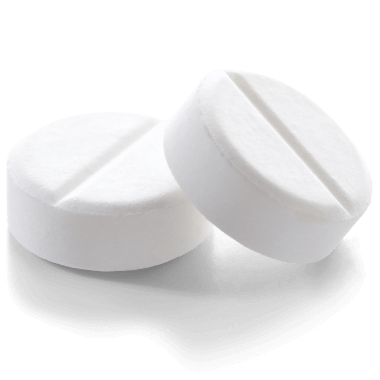The response times were fast, they made sure I was satisfied and more importantly they believed me when I told them about the snafu with my delivery going missing.
Jefferson T


Used for
Relief of symptoms of osteoarthritis, rheumatoid arthritis or other causes of musculoskeletal pain.
How to use it*
Take 7.5 mg once daily; may increase to 15 mg once daily if needed.
How long to work
Noticeable pain reduction in 1 to 2 hours; reduced inflammation within 1 week.
Common side effects*
Stomach upset, nausea, heartburn, indigestion, and headache.
Who should not take it*
Patients with a history of stomach ulcers/bleeding, or allergic reactions to aspirin or NSAIDs.
Interactions*
Increased risk of bleeding with anticoagulants. Do not take with other NSAIDs.
Generic/branded
Generic: Meloxicam.
Brand: Mobic, Anjeso, Xifyrm, Vivlodex, Qamzova.
* Always consult the patient leaflet for comprehensive information.
Meloxicam is a prescription medication used to treat musculoskeletal pain. It belongs to a class of medicines called NSAID (nonsteroidal anti-inflammatory drug).
Meloxicam blocks an enzyme called COX-2, which the body uses to make prostaglandins. Prostaglandins are chemicals that cause inflammation, swelling, pain, and fever.
By reducing prostaglandin production, Meloxicam helps reduce pain and inflammation.
Meloxicam is suitable for adults with musculoskeletal pain. It's safe for most people to take, but there are some exceptions.
You should not take this medicine if you:
You should also avoid taking this medicine or speak to your doctor if you:
Tell your doctor if you take any other medicines, natural health products, or supplements. Meloxicam may affect how other medicines work and vice versa. Tell your doctor if you are currently taking the following medicines:
For a complete list of precautions and medicine interactions, consult the patient information leaflet.
If you have never taken this medication before, the recommended starting dose is 7.5mg.
Meloxicam usually starts to work within 1 to 2 hours and reaches its peak level in the blood after 4 to 5 hours. The full anti-inflammatory effects may take a few days to a week to occur.
You should stop taking Meloxicam and seek immediate medical attention if you experience any of the following side effects:
Avoid taking Meloxicam with other NSAIDs (e.g. ibuprofen or naproxen). Paracetamol is generally safe however, you must always check with your doctor or pharmacist first.
Yes, you can buy Meloxicam tablets online at SpeedyHealth after completing our free online consultation.
You must complete an online consultation as Meloxicam is a prescription-only medication. This process is quick and easy and allows our doctors to ensure this medicine is safe for you to take.
Medically reviewed by Dr. Adrian Rawlinson
Written by our editorial team | Last reviewed January 15, 2026


1Online form
Choose your medication.
Complete a short assessment form.

2Doctor review
A licensed doctor checks if it’s safe.
If so, your prescription is issued.


3Free discreet delivery
We dispatch on same working day.
Delivered for free to your door.